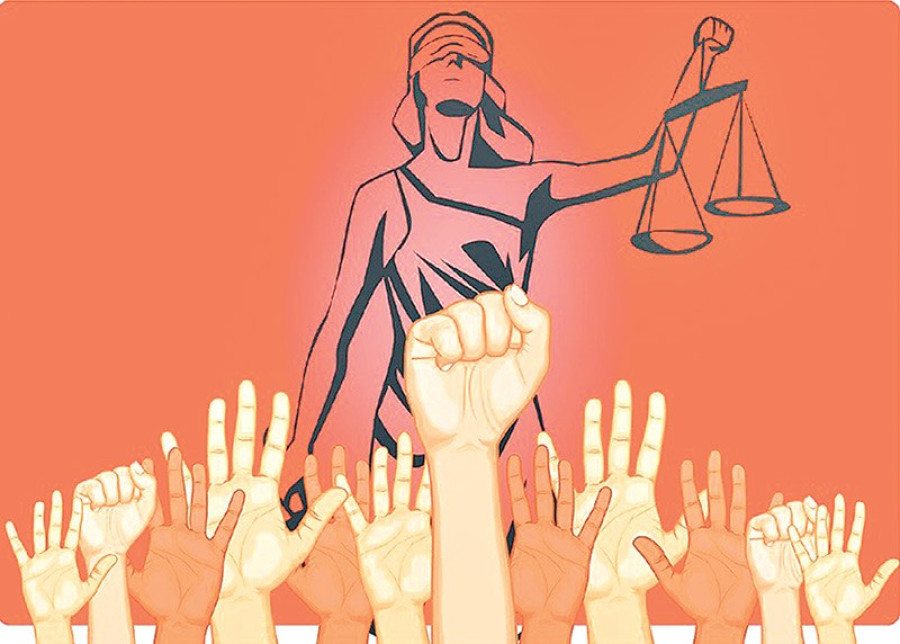Editorial
Going wrong on rights
Nepal’s development partners could question its commitment to human rights and reconsider funding.
Nepal may have ratified various conventions on human rights, but it has fallen short of upholding them. In January 2022, during the third cycle of the United Nations Human Rights Council’s Universal Periodic Review (UPR), Nepal accepted 196 out of 233 recommendations and committed to executing them. These recommendations covered 42 thematic areas, including issues related to child rights, sexual and gender-based violence, national human rights institutions, equity and non-discrimination. Yet, three years and four governments later, most of these promises remain unfulfilled, as they are stuck in bureaucratic limbo.
This inaction is evident in a report submitted by a consortium of non-governmental organisations, which includes the Nepal National Coalition for UPR, the National Women’s Coalition for UPR and the Durban Review Conference Follow-up Committee Nepal to the UN Human Rights Council’s Universal Periodic Review (UPR). The report suggests the country has failed to implement most of the recommendations from the third cycle, with many either not executed or only partially carried out. Nepal was first reviewed by the UPR in its 10th session on January 25, 2011, followed by a 2015 session—both the reviews centred on caste-based discrimination. Even then, Nepal failed to act meaningfully on most of the recommendations made by member states.
The country’s most alarming failure is evident in its implementation of the recommendations on child rights and gender-based violence. For instance, according to the periodic review five years back, Nepal had accepted all 10 recommendations related to child rights. While 60 percent have been partially implemented, 40 percent have been completely ignored. Such is also the case with the recommendations on sexual and gender based violence: Nepal has partially implemented 61 percent of them, leaving 39 percent unaddressed.
Other areas have seen similar lapses. Although Nepal pledged to embrace all four recommendations related to human rights institutions, only one has been fully implemented. Concerning equity and non-discrimination, various countries proposed 18 recommendations, of which Nepal acknowledged 14. Approximately 80 percent have seen some level of implementation, while the remaining 20 percent have been left untouched. Such blatant disregard for human rights is unacceptable in a democratic society.
As the preamble of Nepal’s Constitution 2015 pledges a commitment to human rights, continued failure to implement the recommendations made by the UPR is a dereliction of duty. Article 279 of the Constitution and Section 9 of the Treaty Act 1990 also emphasise Nepal’s obligation to comply with international treaties. As many countries fund Nepal’s human rights and rule of law initiatives, failure to act in accordance with the recommendations could not only lead Nepal’s development partners to question its commitment but also cause them to reconsider their funding. Our political leaders must answer why so many commitments remain unfulfilled.
There is still time for course-correction. Nepal’s fourth cycle of UPR is scheduled for January 2026. By October 5 this year, the government must submit its national report to the Human Rights Council. Taking cue from the recommendations, sufficient budget and logistical resources must be set aside to guarantee proper implementation of promised rights. As vital is seeking international cooperation, if need be. Symbolic acceptance of recommendations at international forums is meaningless without domestic follow-through. The cost of this lax approach could be too high to bear for the country.




 23.27°C Kathmandu
23.27°C Kathmandu














